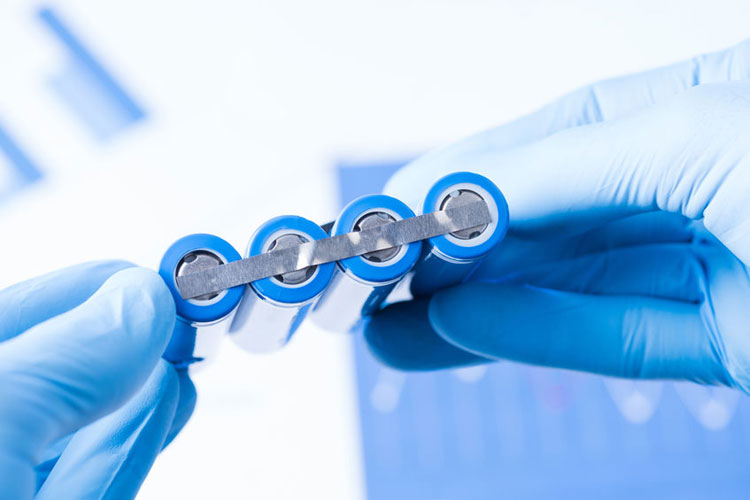
A new JRC science-for-policy report by the European Commission's science and knowledge service projects that the prices of lithium ion batteries will collapse significantly by 50% in 2030 and further decline by 75% in 2040. This will impose relentless pricing pressure on manufacturers, pushing them to find new ways to mitigate manufacturing costs, including raw material costs, packaging costs, as well as the cost of manufacturing cells.
The Rapid growing adoption of Electric Vehicles around the world and broadening expansion in the lithium ion battery manufacturing sector is expected to disrupt the power, oil & gas, and transportation landscapes. With a sharp rise in demand for production of automotive lithium ion batteries, their prices are likely to drop dramatically in the next five years. Lithium ion battery manufacturers will have to modify their business operations to mitigate the cost of manufacturing to introduce competitive prices and maintain an edge in such fragmented landscape. Here are some ways that can reduce the cost of setting up a lithium ion battery manufacturing plant, as margins are cut to the bone in this landscape.
1. Maintaining Competitive Prices by Mitigating Raw Material Costs
The barriers to entry are relatively low in the mid-stream sectors of the supply chain of lithium ion battery manufacturing, such as separator and cell assembly, and anode and cathode active materials. This is further intensifying the competition in these areas and squeezing margins to a new low. Leveraging the low-cost manufacturing jurisdictions in developing countries in Asia Pacific is one of the most popular means of lowering costs of lithium ion batteries. In addition, material scientists and engineers can focus on reducing costs using new technology, through the development of new anode and cathode active materials and innovative methods of material-processing techniques to address the need to control cost and introduce safer and reliable batteries.
The raw material costs and material processing cost cannot be separated, since the raw materials used in lithium ion battery manufacturing plants are processed before use, developing new and low-cost material processing techniques can be an important catalyst in minimizing the “raw material” cost for lithium-ion batteries.
2. Adopting Advanced Technologies Maximize Business Productivity and Mitigate Costs
Automation and digitalization is becoming the new workhorse for the whole manufacturing landscape, and lithium ion battery industry is no exception. The fourth industrial revolution—Industry 4.0—emphasizes the adoption of advanced technologies for implementing factory automation and digitalization of manufacturing operations to ensure efficient mass production and economic success.
With advent of advanced technologies such as Robotic Process Automation (RPA) and Artificial Intelligence (AI), lithium ion battery manufacturers can overcome this challenge. Implementing automation and digitalization solutions can help businesses to trigger the productivity and efficiency of their li-ion battery manufacturing plants and mitigate manufacturing expenses by reducing downtime and processing costs.
Optimization of most business operations, from stacking of Li-ion pouch cells and welding, to the final step of battery assembly as well as transportation, can be ensued from automating manufacturing processes in a lithium ion battery manufacturing plant. Simultaneous engineering or concurrent engineering solutions are also gaining immense popularity among Li-ion battery manufacturers, as these solution can help in producing better battery module designs and further boost efficiency of a lithium ion battery manufacturing plant. In addition, the adoption of high-tech welding machines that are compatible with next-generation automation technologies will reach new heights with the rising trend of Industry 4.0 in this landscape.
The battery industry is expected to undergo a technological transformation, where advanced robotic solutions will replace humans in most operations to improve accuracy, productivity, as well as flexibility of the entire battery manufacturing process. Manufacturing Execution System (MES) platforms and interactive Internet of Things (IoT) will become an integral part of data management processes as well as maintenance monitoring operations in lithium ion battery manufacturing businesses.
Manufacturers, who will realize the power of technologically strong automation and digitalization solutions, will lead the pack in the world of li-ion battery manufacturing.
3. Favourable Government Policies and Incentives for Lithium Ion Battery Manufacturing Businesses
Lithium ion battery manufacturers are on the constant lookout for lowest risk financial incentives and favourable political environment to limit their manufacturing costs and survive under the tremendous pricing pressures. Support from governing bodies in terms of smooth licensing and certification processes, access to clean energy, skilled labour, and raw materials.
Stakeholders have a wide range of favourable geographical locations with best business case of setting a lithium ion battery manufacturing plant. However, the European Union (EU), and emerging economies in Asia Pacific, such as China and India are among the most popular regions where governing bodies are creating suitable environment for lithium ion battery businesses to foster.
In 2017, the European Commission (EC) announced the launch of the European Battery Alliance in order to bolster the growth of sustainable and competitive value chain in Europe’s battery manufacturing industry. Recently, China’s new credit system started awarding two to six credits on the purchase of a new, low-carbon, fully electric, fuel cell, or a hybrid passenger car. Meanwhile, in India, the proposal of ‘Faster Adoption and Manufacturing of Electric Vehicles’ Phase II (India - FAME Phase II) was recently approved with a total outlay of US$ 1.45 billion to foster e-mobility in the country.
By developing various strategic action plans and offering incentives for boosting the adoption of battery electric vehicles, various governing bodies are creating positive growth environment for lithium ion battery manufacturers. Changing geopolitical factors and regulatory frameworks in favour of electric vehicles will prove instrumental in cost reduction for businesses in setting up a new lithium ion manufacturing plant in these regions in the coming future.





